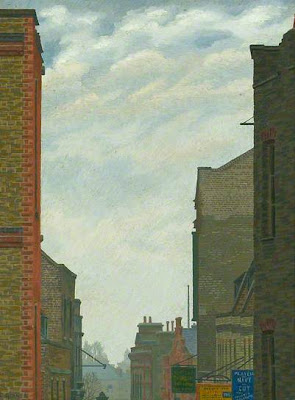In a series of posts titled "No Escape" I have looked at the well-known phenomenon of "wherever you go, there you are." To wit: we imagine that everything in our life will fall magically into place if we can simply find the Ideal Place that, until now, has eluded us. It comes as no surprise that this is a delusion, a delusion that has been remarked upon by Montaigne, Johnson, and a host of others.
However, although the Ideal Place may be a chimera, a case may be made that a Proper Place can be found. I realize that this may seem like a distinction without a difference. But I see the distinction (somewhat fuzzily) as this: finding one's Proper Place does not guarantee "happiness" (whatever that is) or provide Big Answers (to allude to Elizabeth Jennings's poem "Answers"); however, a Proper Place may provide equanimity and content ("content" as in A. E. Housman's "that is the land of lost content/I see it shining plain").
The following poem by Neil Powell provides an example of what I am (inadequately) trying to articulate.
Charles Ginner, "Flask Walk, Skyline" (1934)
Covehithe
In my dream they said: "You must go to Covehithe."
I crossed over the causeway between two blue lakes
And I found myself on a long forest path
With a few wooden shacks and a glimpse of the sea.
I thought after all it was a place that might suit me.
But they said: "You must learn from your mistakes."
So, I have come to Covehithe. Low winter sun
Scans fields of pigs, dead skeletal trees,
Collapsing cliffs. There are ships on the horizon.
The great church, wrecked by civil war, not storm,
Now shields a smaller church from further harm.
And they were wrong: I like it as it is.
Neil Powell, The Times Literary Supplement, February 7, 2003.
Charles Ginner, "Lancaster from Castle Hill Terrace" (c. 1947)
Showing posts with label Neil Powell. Show all posts
Showing posts with label Neil Powell. Show all posts
Tuesday, March 27, 2012
Subscribe to:
Posts (Atom)




